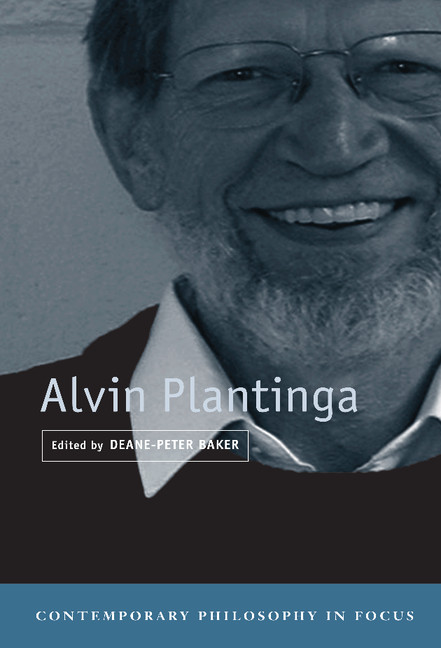


On his view, a thing exists in another possible world only if, had that world been actual, the thing itself, not a mere stand-in or counterpart, would have existed. Moreover, individual things have modal properties -properties such as being possibly seven feet tall, or being necessarily even -and, Plantinga thinks, realism about such properties requires one to believe that individual things exist in other worlds. They are abstract states of affairs of a certain kind -something like total or complete ways that a world history might have gone. On his view, the standard possible worlds semantics for modal logic is to be taken with metaphysical seriousness: it is not a mere heuristic device possible worlds are not merely useful fictions. In The Nature of Necessity (1974), as well as in various papers, a central theme is the exposition and defense of a realist and actualist construal of possible worlds and modal properties. Plantinga's most influential work in metaphysics has focused primarily on the metaphysics of modality. He has given the prestigious Gifford Lectures twice, and in a 1980 article he was heralded by Time magazine as "America's leading orthodox Protestant philosopher of God." Metaphysics He was elected to the American Academy of Arts and Sciences in 1975, co-founded the Society of Christian Philosophers in 1978, served as President of the Central Division of the American Philosophical Association in 19, and served as President of the Society of Christian Philosophers from 1983 to 1986. Plantinga received his MA in philosophy from the University of Michigan in 1955, and his PhD from Yale in 1958 under the supervision of Paul Weiss. There he studied with Henry Stob and Harry Jellema, the latter of whom played an especially formative role in his intellectual development. Plantinga earned his BA in philosophy and psychology from Calvin College in 1953, and he cites his experience at Calvin as perhaps the single most significant intellectual influence in his life. He is best known for his work on the metaphysics of necessity and possibility, for his defense of the view that knowledge is to be analyzed partly in terms of proper function, for his development of the " free will defense" against the so-called "logical problem of evil," for his many and vigorous defenses of the rationality of religious belief, and for his much-discussed "evolutionary argument against naturalism." His publications range over a wide variety of fields, but his most enduring contributions have been in metaphysics, epistemology, and, especially, the philosophy of religion. Born in Ann Arbor, Michigan, Alvin Plantinga is one of the most important and influential philosophers of the twentieth and early twenty-first centuries.


 0 kommentar(er)
0 kommentar(er)
